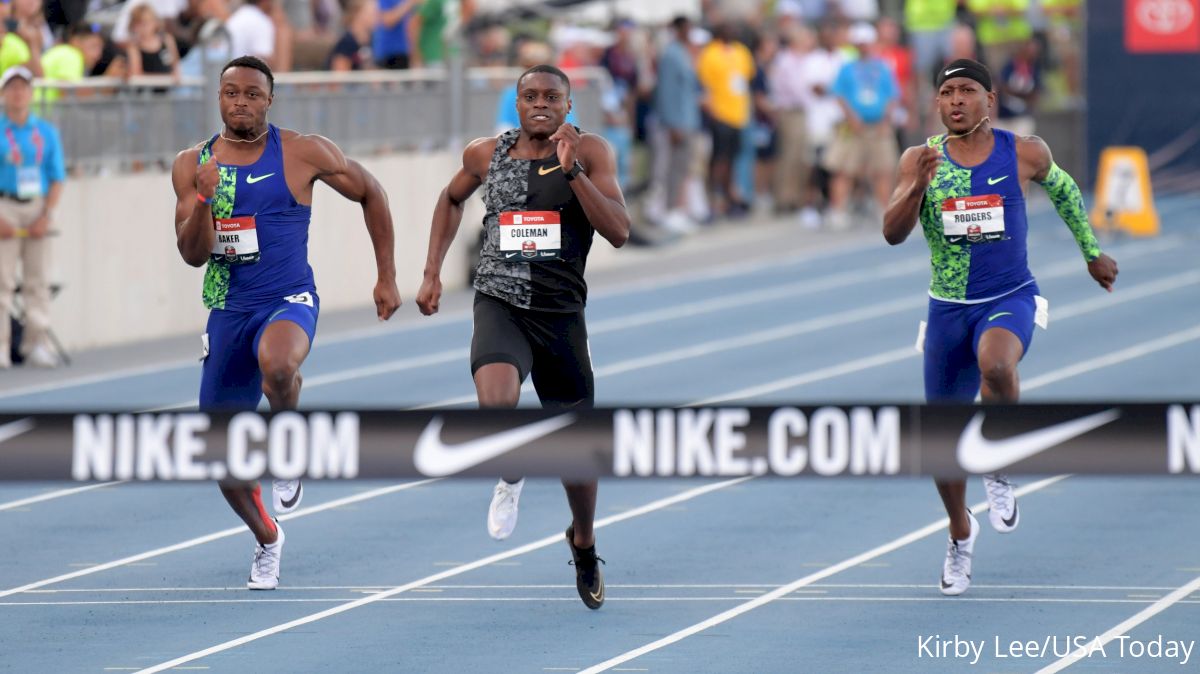Christian Coleman Responds To USADA Dropping Case: 'I Think It's A Shame'
Christian Coleman Responds To USADA Dropping Case: 'I Think It's A Shame'
Christian Coleman spoke publicly for the first time since the U.S. Anti Doping Agency dropped their case against the sprint star last week.

Christian Coleman spoke publicly for the first time since the U.S. Anti Doping Agency dropped their case against the sprint star last week.
In a 22-minute video posted to his YouTube page on Wednesday, Coleman criticized the anti-doping organization, detailing how he felt the organization mishandled his case for whereabouts failures.
“I think it’s a shame on USADA that this was public knowledge. The fact that they didn’t know their own rules and the fact that they expect athletes to know the rules but they can’t follow their own,” Coleman said.
USADA dropped their case just days before Coleman was set to have a hearing before the Court of Arbitration for Sport after they reclassified one of the missed tests as a filing failure. That distinction backdated the violation and meant that Coleman didn’t have three violations over a 12-month period, clearing him to compete.
Coleman contends that his team was aware of this rule and notified USADA that a case never should have been brought.
”Their organization is design to protect the athletes, but in that situation, I felt like a victim. I felt like I was being attacked like they were trying to go after the biggest name in the sport.”
Coleman went on to detail the circumstances around the three violations.
The first came in June of 2018. Coleman was injured during the Rome Diamond League and flew back to the United States to receive treatment at Nike headquarters in Portland. When the doping control officer came to test him in Knoxville, on June 6, Coleman was still in Oregon.
“That is on me, that is my fault,” Coleman said. Because the tester came outside of his designated one-hour testing window, the missed test was considered a filing failure.
The second violation occurred when Coleman was in Lexington, Kentucky, in January of 2019. Coleman said his weight lifting session, typically at 9 AM, was moved to 8 AM. Coleman’s one-hour testing window was 7-8 AM, but he forgot to update his location. The doping control officer arrived at his residence to conduct the test and Coleman was still at his workout. The doping control officer attempted to contact Coleman, but he says he didn’t receive a call.
“I do take responsibility for that. I didn’t update it when I got the updated weights schedule,” Coleman said.
Coleman received his final violation in April of this year. Coleman traveled with the University of Kentucky (where he trains and is a volunteer assistant) to the Drake Relays and thus wasn’t in Lexington.
According to Coleman, the doping control officer told him that the violation would be considered a filing failure — and not a missed test — because she came outside of the one-hour window. Still, Coleman says he wanted to “let USADA know there was nothing fishy going on,” so he and his agent went to a private company to get a drug test, while at the Drake Relays.
Once Coleman received word that he was facing a suspension, he withdrew from Diamond League meets in Birmingham and Zurich as a precaution (in case he was banned, he thought the suspension could be backdated to the date of his last competition, keeping open the potential of making the U.S. Olympic team in 2020). Missing those meets, Coleman says, cost him $150,000.
After the case was dropped, Coleman says USADA CEO Travis Tygart called him to apologize for the organization “not moving in a professional manner.” Coleman asked for a public apology.
In addition to the monetary damage, Coleman said the case has “smeared” his reputation heading into a World Championship where he is a large favorite to win the 100m.
In a USADA statement, Tygart said, “Every athlete is entitled to a presumption of innocence until their case is concluded through the established legal process. This is certainly the case for Mr. Coleman, who has been found by USADA not to have committed a whereabouts violation and is fully eligible to compete under the rules.”
“I feel like people don’t realize how easy it is to miss tests. There were people out there calling me an idiot and people saying you’ve got to be stupid to miss tests and whatnot,” Coleman said. “It has nothing to do with doping. It has nothing to do with trying to dodge tests."
Coleman also took issue with the disparity in the volume of testing. According to the USADA database, he was tested at least 20 times over the last two years.
"It’s kind of unfair that if we are all playing by the same rules, you can’t forget to update your app and miss three tests and I can’t miss three tests as well. Well, the likelihood of me forgetting and them coming to test me is far greater than the average athlete," Coleman said. "I’m not making excuses; it's what comes with the job."